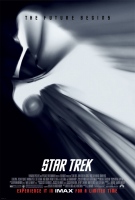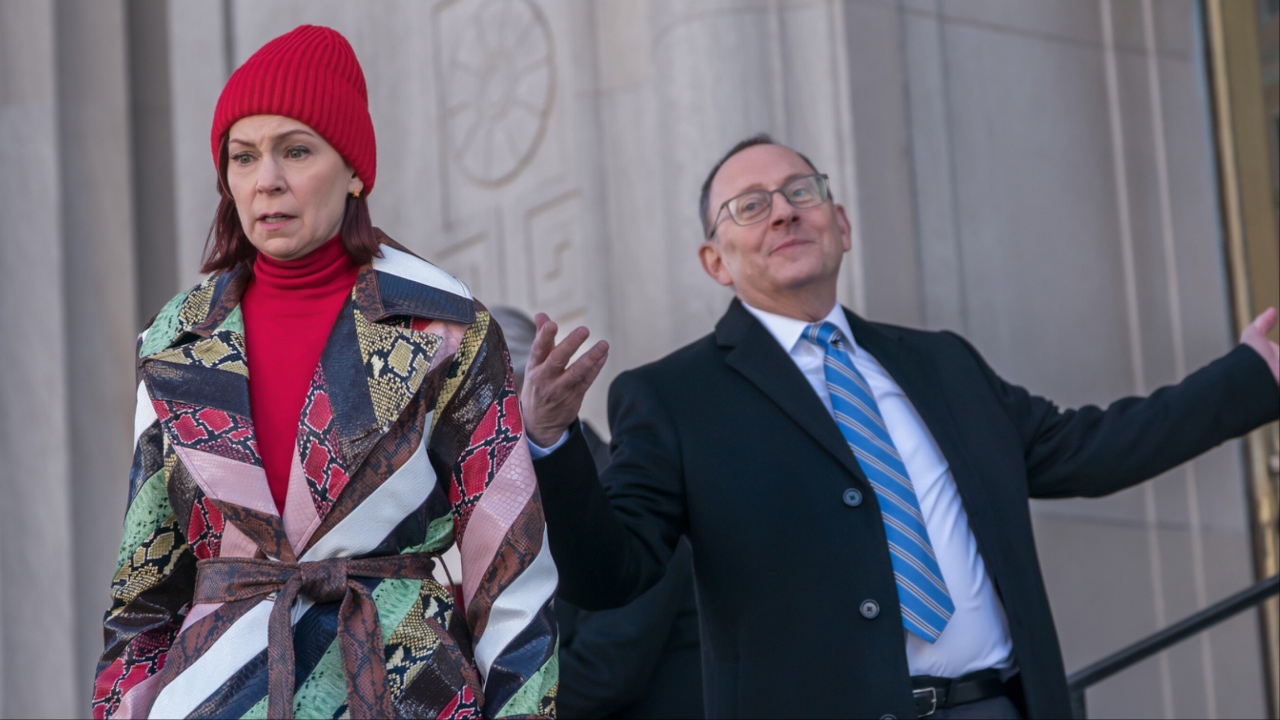How do you revive Star Trek for a new audience? You scrap it for parts. Ditch the heavy-handed moral issues and the Klingon language, keep the beloved characters and the wide-eyed sense of adventure. Update the creaky sets and horrible uniforms, hang on to the notion that, in the future, we're all capable of creating a better world. Most of all, hire a director with boundless enthusiasm, and knows how to direct the hell out of an action scene.
The new Star Trek is shinier, faster and maybe shallower than anything Gene Roddenberry ever dreamed up, and it's fantastic, a damn-near-perfect summer adventure that could make a person's heart burst from movie-loving joy (I know mine did). It opens with a stunning space action sequence, and while it takes breaks for character development and comic relief, Star Trek never loses its lickety-split pace, an energy on par with the youthful vigor of its cast. Sometimes that means a plot thread or two is left dangling, and as always, a few characters get shorted on their development. But when you're wrapped up in this adventure, you'll be too enthralled to notice.
I went into this movie with more Trek knowledge than I ever expected to have-- see here for more on that-- but nothing I learned from the original six Trek movies was needed here. Sure, there are plenty of nods to the original, from the Kobayashi Maru to some pitch-perfect recreations of original characters. But for the most part we're starting fresh here, thanks to a time travel black hole 25 years before the action starts, which leads Nero (Eric Bana), an angry Romulan from the future, to destroy the U.S.S. Kelvin. Heroically sacrificing himself onboard is George Kirk (Chris Hemsworth), who in the Star Trek we knew before lived to raise his son, James Tiberius.
Years later Jim Kirk (Chris Pine) is a juvenile delinquent growing up in the cornfields of Iowa, motivated to join Starfleet by stern Captain PIke (Bruce Greenwood), who insists he could surpass his father's legacy. At Starfleet Kirk flirts shamelessly with Uhura (Zoe Saldana), quickly befriends McCoy (Karl Urban, channeling DeForest Kelley flawlessly) and cheats on the Kobayashi Maru, earning some bitterness and maybe even jealousy from Spock (Zachary Quinto), the half-Vulcan, half-human Starfleet graduate who has no use for Kirk's brash disregard for rules.
Because of his cheating Kirk isn't even allowed on a ship when the entire Starfleet is sent out to stop an attack on Vulcan, but McCoy sneaks him onboard the Enterprise in a deft comic sequence, and before too long Kirk has worked his way up to giving advice on the Bridge. We're briefly introduced to some key characters-- hi there, Sulu (John Cho) and Chekov (Anton Yelchin)!-- before being tossed into another killer action sequence that launches the second half of the movie.
I can't begin to get into the details of the story's time travel-bent plot, and how it comes to involve an encounter between New Kirk and Old Spock (glad to have you, Leonard Nimoy) and an explanation that Nero is really just a lonely miner who misses his wife and his home planet, mostly because I'm not sure I understand it myself. But even though the middle section of the movie delves into some major exposition, thanks to Vulcan mind meld, and a little bit of villain monologuing, it never feels slow or stodgy, or confusing at all. There's as much time given to plot development as there is the gradually thawing rivalry between Kirk and Spock, or the wonderfully hilarious introduction of Scotty (Simon Pegg). Nero gets shorted here, and doesn't amount to much more than the usual Trek villain who glowers at the screen and screams the name of Enterprise crew members in fury. He really, really should have had a face off with Spock, old or new, especially since he blames our favorite Vulcan for the tragedies that befall his planet in the future. But in general Star Trek is more focused on the main characters, and letting us get to know them--and each other-- via kick-ass action.
Seeing the whole thing on the IMAX screen, the visuals were brilliant, though since it wasn't filmed with the IMAX format particularly in mind, Star Trek isn't essential giant-screen viewing like, say, The Dark Knight. In fact some of the more irritating tics of Abrams' visual style-- the shaky cam, those stupid incessant lens flares-- might be even more magnified on the giant screen, leaving you less visual space to calm the image down in your brain. Then again, seeing the shiny new Enterprise appear on a giant screen and flood our vision was enough to bring my entire audience to applause.
What else? The casting is perfect, from Quinto's Spock who isn't yet in control of his emotions to Yelchin's garbled Chekov. The dialogue is snappy and funny, with no stopovers into the glum moralizing of previous Trek adventures. And even the score by Michael Giacchino, zippy and melancholy and even tremendous at times, feels like a breath of fresh air, a reminder that a big Trek movie can be fun and entertaining and a little thoughtful without being ponderous.
Falling short of being a masterpiece, with its ho-hum villain and Roberto Orci and Alex Kurtzman's somewhat logic-challenged script, Star Trek is still the kind of movie people my age will show our kids in 20 years, in the way many of us had parents who sat us down with The Wrath of Khan. Like Iron Man, it's the kind of franchise opener that leaves you giddy for a sequel, stuffed with ideas about where to go from here. It's the kind of blockbuster that makes you happy movies exist.
Staff Writer at CinemaBlend












